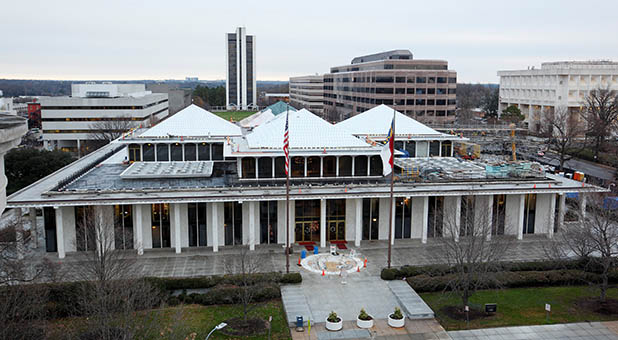North Carolinians Come to a Compromise Over Bathroom Bills
Incoming North Carolina Gov. Roy Cooper quickly put the controversy of “bathroom bills” to rest in his state by striking a compromise between the city of Charlotte and Republicans in the state legislature this week.
But don’t be too quick to declare this a victory—or a defeat. This is but the third chapter of what promises to be an ongoing saga for residents of Charlotte and North Carolina.
First, the Charlotte City Council issued the following statement regarding its bathroom ordinance:
The city of Charlotte continues its commitment to be a welcoming community that honors and respects all people.
The Charlotte City Council recognizes the ongoing negative economic impact resulting from the passage of the city’s non-discrimination ordinance and the state’s House bill. The Council acknowledges that North Carolina House Bill 2 “supersede(s) and preempt(s)” the city’s ordinance. In order to continue thriving as an inclusive community and compete for high paying jobs and world-class events, the city and state must take action together to restore our collective reputation.
During this morning’s legislative briefing with the state delegation representing Mecklenburg County, the Charlotte City Council voted to remove the non-discrimination ordinance from the city code. The city urges the state to follow immediately with a repeal of House Bill 2.
The city of Charlotte is deeply dedicated to protecting the rights of all people from discrimination and, with House Bill 2 repealed, will be able to pursue that priority for our community. There are many issues that require a positive and collaborative relationship between the city and state. The city pledges commitment to that partnership.
Based on that statement, Republicans in the state legislature are under no obligation to repeal HB 2, but Gov. Pat McCrory has called a special session to do just that. Immediately after the council issued the statement, Cooper issued a statement of his own, further cementing his connection to the situation:
Senate Leader Phil Berger and House Speaker Tim Moore assure me that as a result of Charlotte’s vote, a special session will be called for Tuesday to repeal HB 2 in full. I hope they will keep their word to me and with the help of Democrats in the legislature, HB 2 will be repealed in full.
Full repeal will help bring jobs, sports and entertainment events back and will provide the opportunity for strong LGBT protections in our state.
Throughout this ordeal for the Tar Heel State, and until his inauguration next month, Cooper has been and remains the state’s attorney general. But rather than attempt to negotiate a deal with the city—or to defend the law from court challenges—he washed his hands of the matter and then used it as a weapon against McCrory in the just-completed gubernatorial election campaign.
Likewise, the Charlotte City Council was given two other opportunities to work out a compromise with legislators over the matter, in May and September, but refused. That has led many to speculate the city’s leaders allowed it to be used in a political ploy meant to ensure a Democratic victory in the fight for the governor’s mansion.
McCrory and the Republican legislative leadership didn’t mince any words about it, either.
“This sudden reversal, with little notice after the gubernatorial election has ended, sadly proves this entire issue, originated by the political left, was all about politics at the expense of Charlotte and the entire state of North Carolina,” he said in a video statement announcing the special legislative session.
Berger and Moore issued their own joint statement:
“Today Roy Cooper and [Charlotte Mayor] Jennifer Roberts proved what we said was the case all along: Their efforts to force men into women’s bathrooms and shower facilities was a political stunt to drive out-of-state money into the governor’s race. For months, we’ve said if Charlotte would repeal its bathroom ordinance that created the problem, we would take up the repeal of HB2.”
It’s a political ploy that could backfire for Democrats and the City of Charlotte. LGBT activists throughout the country, understanding they’ve been played, are not happy about the arrangement. Their momentary support is being upheld by assurances the Charlotte City Council will enact other LGBT “protections” in the coming year. {eoa}














































